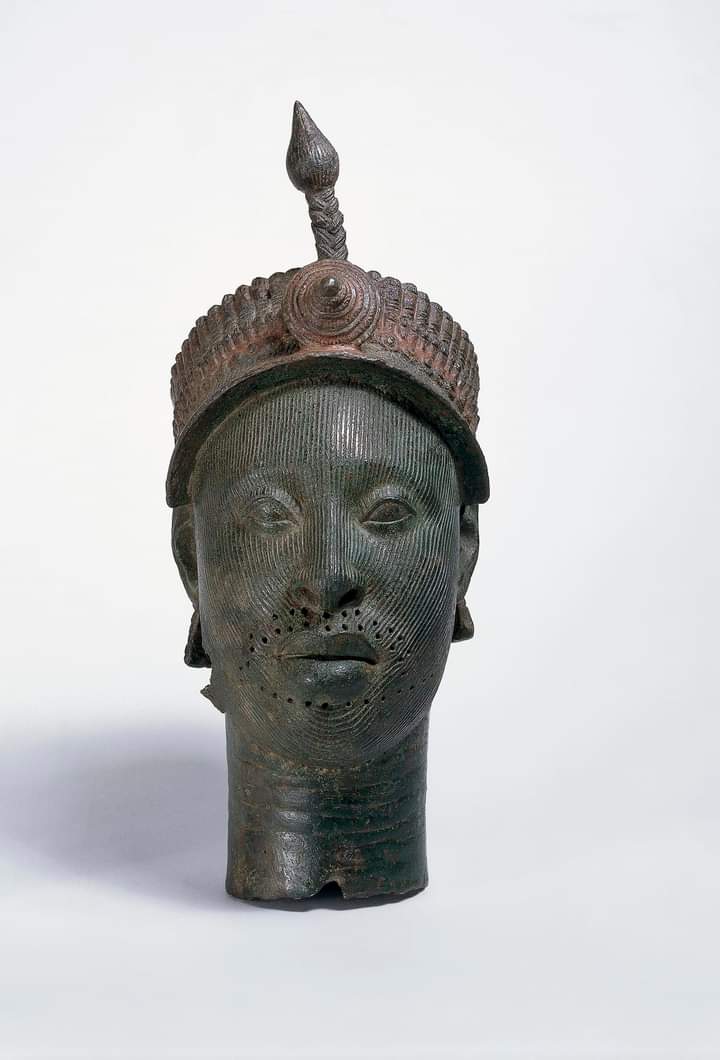YORÙBÁ LANGUAGE AND THE INESCAPABLE GRIP OF ẸLẸ́BỌ METAPHYSICS (PART ONE)
YORÙBÁ LANGUAGE AND THE INESCAPABLE GRIP OF ẸLẸ́BỌ METAPHYSICS (PART ONE)
Some neo-puritan Muslims in Nigeria are quick to hurl the word Ẹlẹ́bọ at African traditionalists—using it as a derogatory term for idolaters or shirk (of monotheism logic). Ironically, Ẹlẹ́bọ in its original Yorùbá sense means “bearer of sacrifice”—a sacred concept tied not to mere idol-worship, but to a vast, complex metaphysical worldview centered on destiny, appeasement, and spiritual negotiation with unseen forces.
What many of these critics fail to realize is this: the Yorùbá language itself is steeped in metaphysical codes that cannot be rinsed out, even with their religion. So, the very act of speaking Yorùbá is, in many ways, an invocation of ancestral power—including the very Ẹlẹ́bọ ideas they so vehemently reject.
A powerful illustration of this paradox can be found in the work of Mr. Adedeji Qamardeen Yusuf Odunlami, popularly known as Ayeloyun—a celebrated figure in Nigerian Islamic music, loved across the Southwest.
Years ago, he sang a line that many still hold dear:
“Orí mi o, Ẹlẹ́dàá mi, dákun jọ̀wọ́ o, má gbàbọ̀dè sìn mi dé’bí ire.”
(My orí, my Ẹlẹ́dàá, please I beg you, do not let external forces lead me astray from my destined place of goodness.)
This heartfelt plea is soaked in Yorùbá metaphysical essence. The concept of Orí (the metaphysical head) is central to Yorùbá spirituality—seen as one’s personal destiny, inner deity, and divine compass. It is Orí that chooses one’s fate even before birth, and it must be constantly appeased to ensure alignment with the path of iré (good fortune).
The word Ẹlẹ́dàá, as different from Adẹ́dàá is also deep. The reason being that it wasn’t Olodumare alone that created humans in Yorùbá belief system: the body was molded by Ọbàtálá and the head done in the house of Àjàlá. Only the activating breath of life was contributed by Olódùmarè.
So, by invoking both Orí and Ẹlẹ́dàá, the singer unknowingly channels core principles of Ẹlẹ́bọ metaphysics: intercession, personal destiny, spiritual negotiation, and the ever-present need for alignment between the self and these divine.
Even more revealing is the mention of àbọ̀dè, a word rich with traditional connotation—symbolizing spiritual bug, much like computer virus, a sentinels, or agents that can only mislead or corrupt good destiny. The fear of being “led by àbọ̀dè” is a direct reference to indigenous spiritual beliefs about forces that distract or derail destiny.
So here’s the irony: While some religious purists shout down traditional belief systems, they are themselves unwitting practitioners and crusaders of Ẹlẹ́bọ metaphysics—not through rituals perhaps, but through the very language they speak, the idioms they use, and the songs they sing. You cannot say “mo fi Ògún ẹ̀ gbárí” in Yorùbá without you referencing the god of iron.
Even Allah, one imagines, might smile at this divine comedy: humans caught between belief systems, yet speaking in tongues soaked with the very spirituality they claim to reject. 😂
The other day, Saheed Shittu was singing song that Ọ̀rúnmìlà taught his children to sing when they are faced with death.
In truth, to speak Yorùbá is to speak Ẹlẹ́bọ metaphysics. It is to tap into an age-old system of thought where language, destiny, sacrifice, and the divine are all woven into one. You can abandon the shrines and rituals—but as long as your tongue still shapes Yorùbá words, you are still an Ẹlẹ́bọ. The best for you is never to speak Yorùbá language again.



